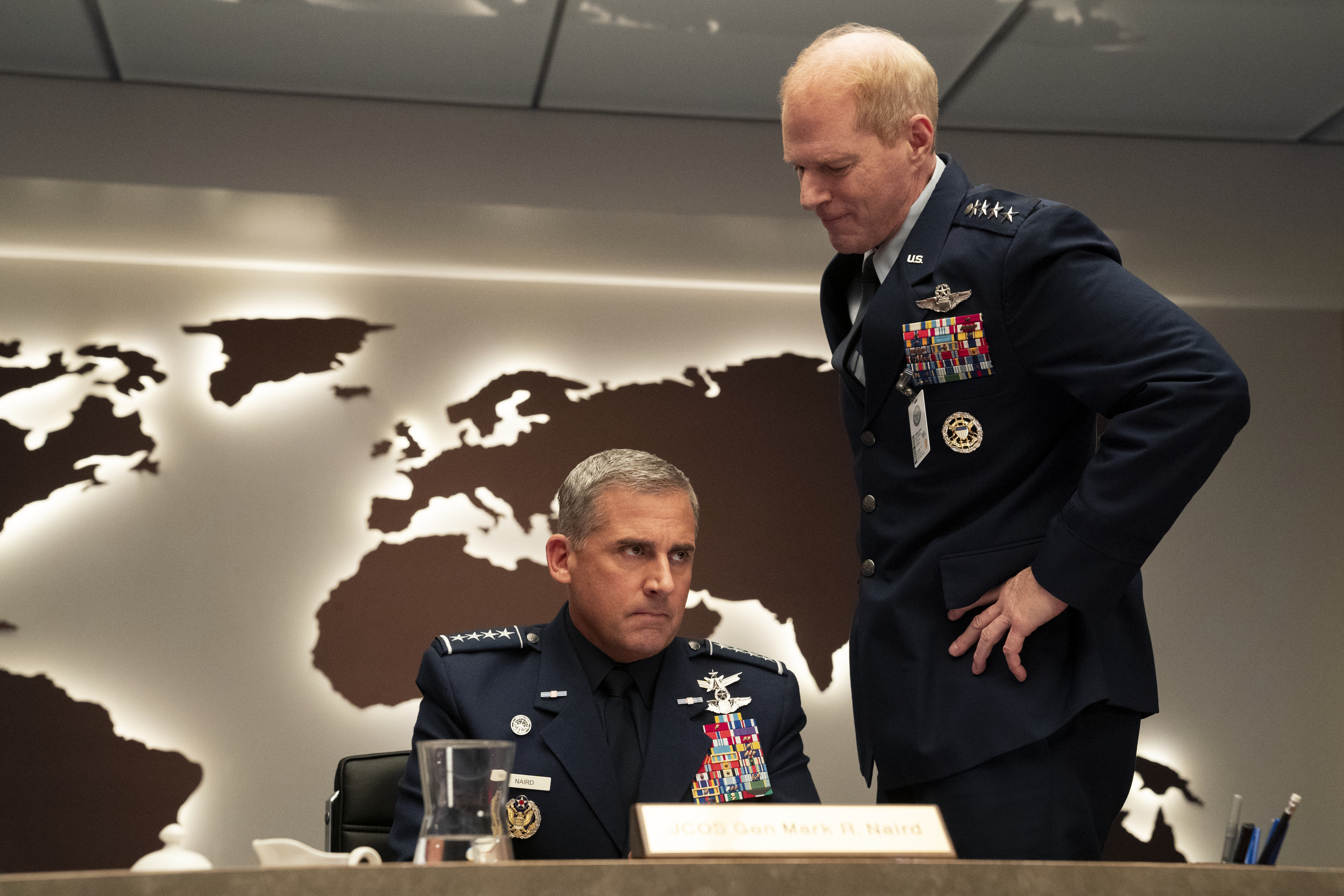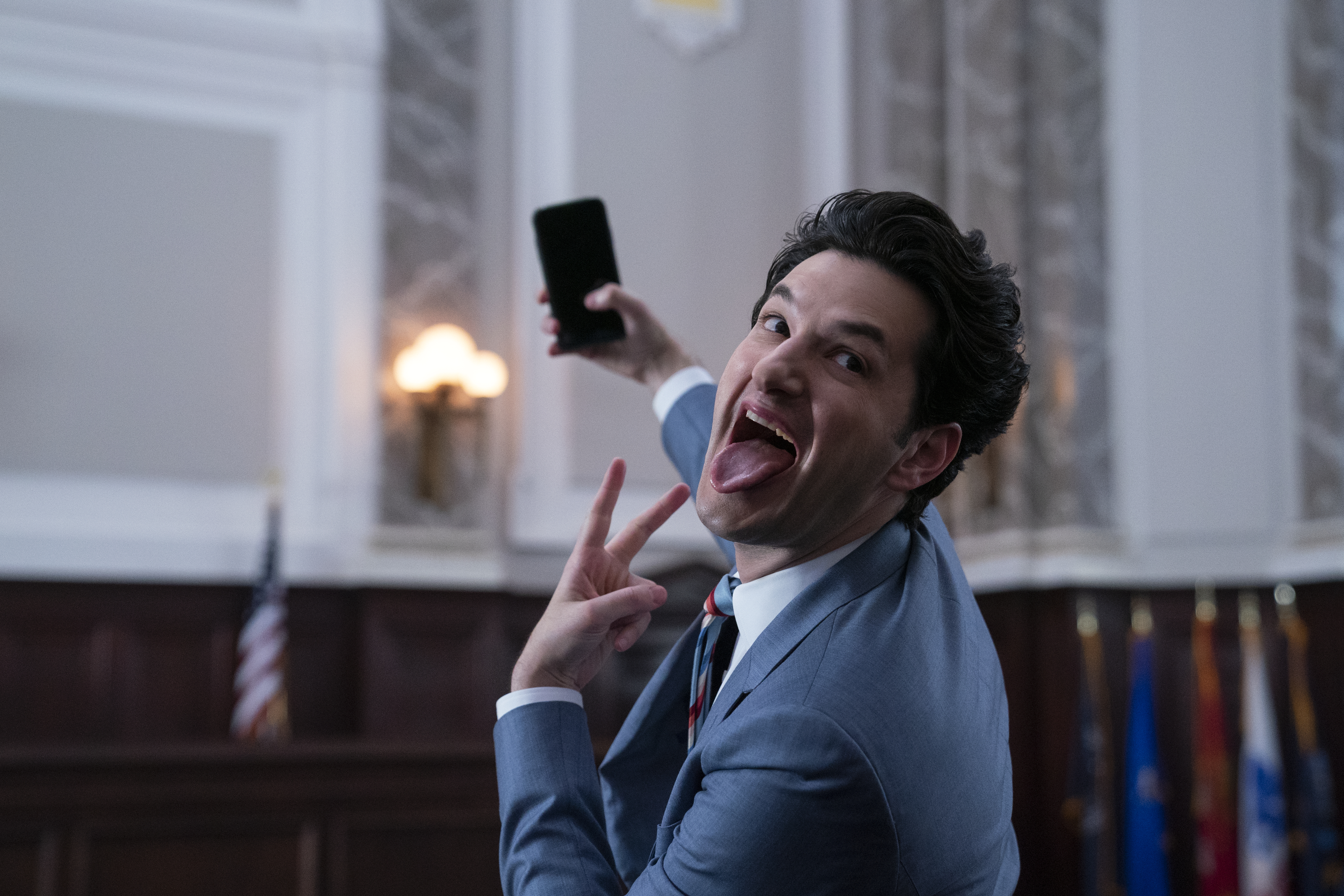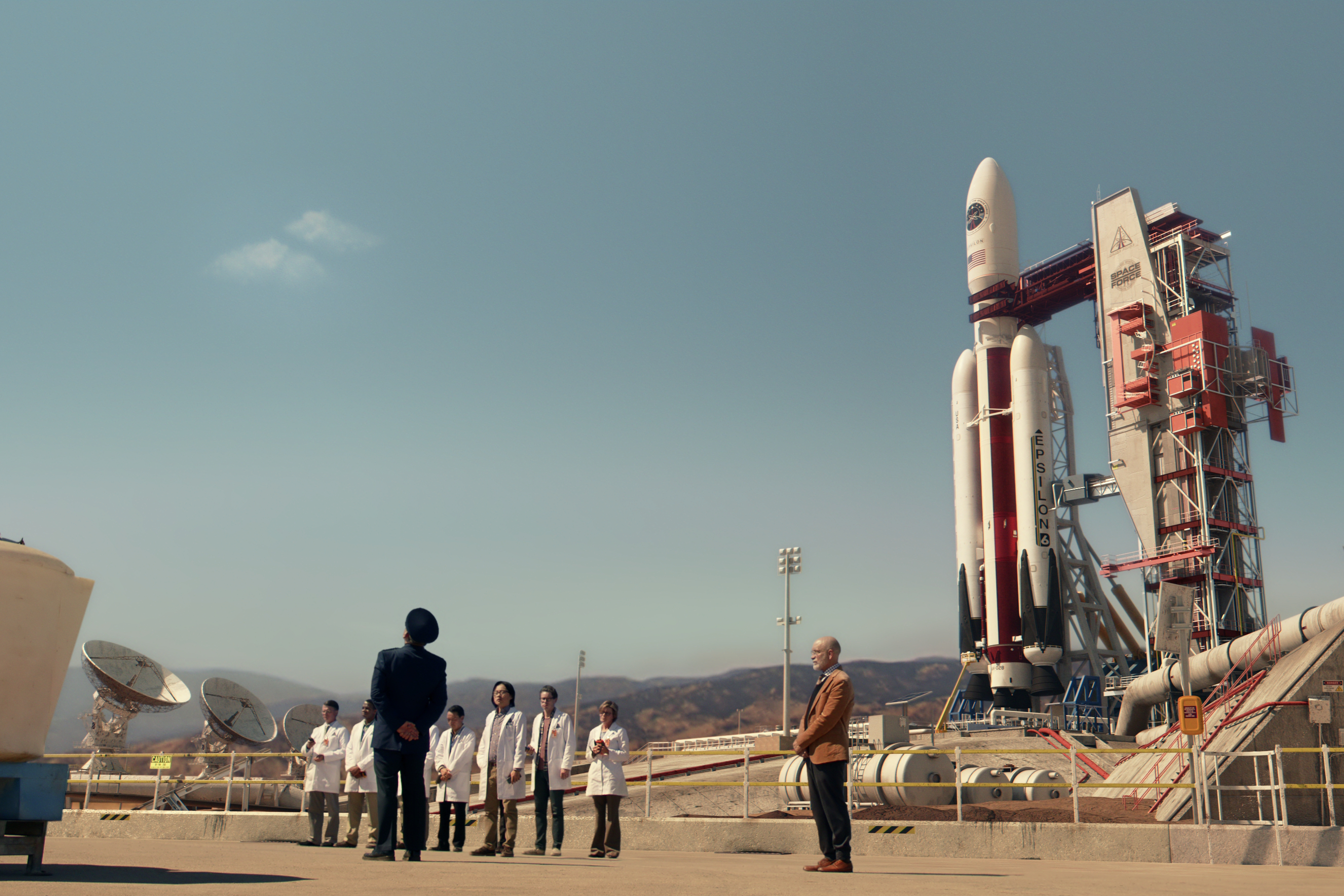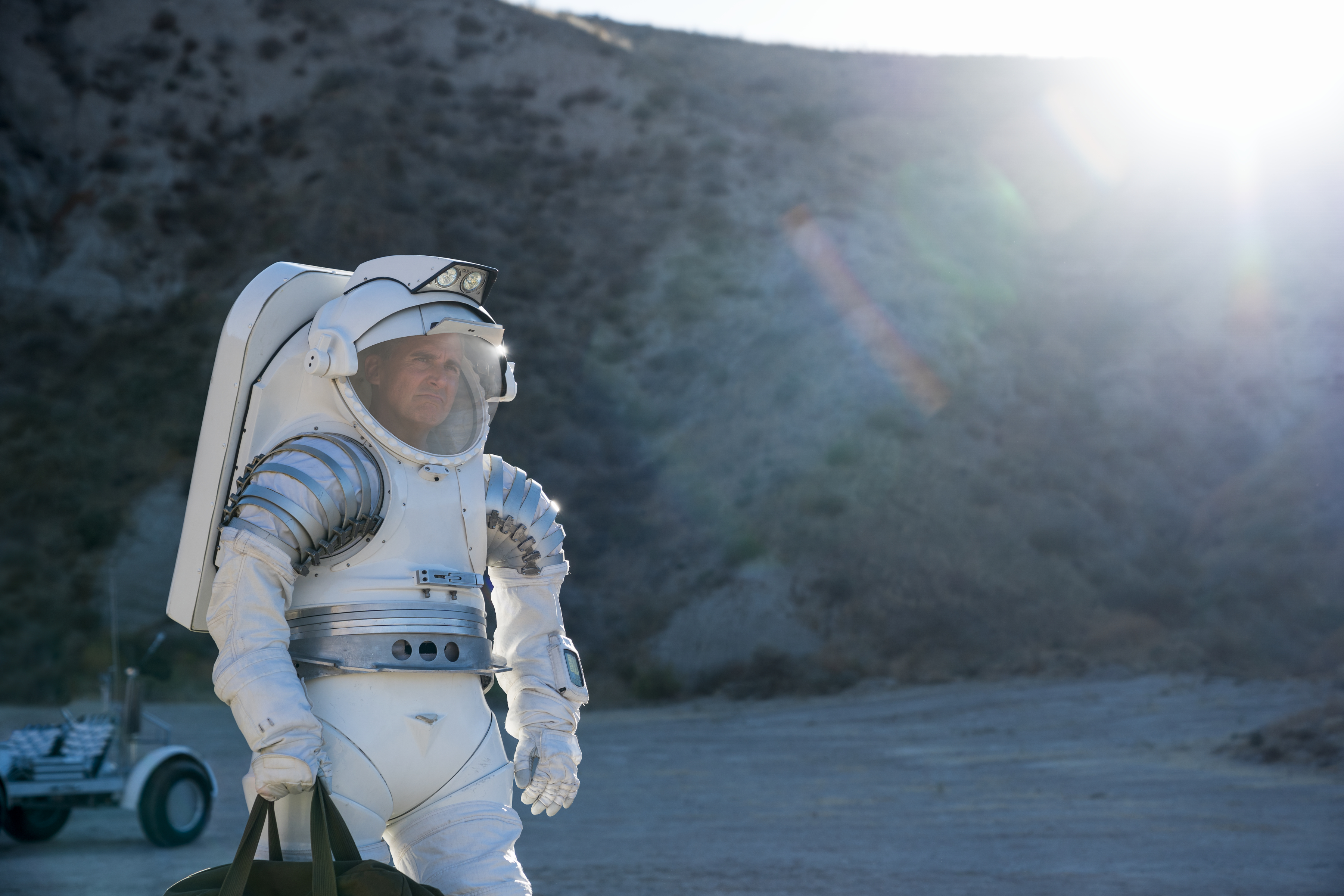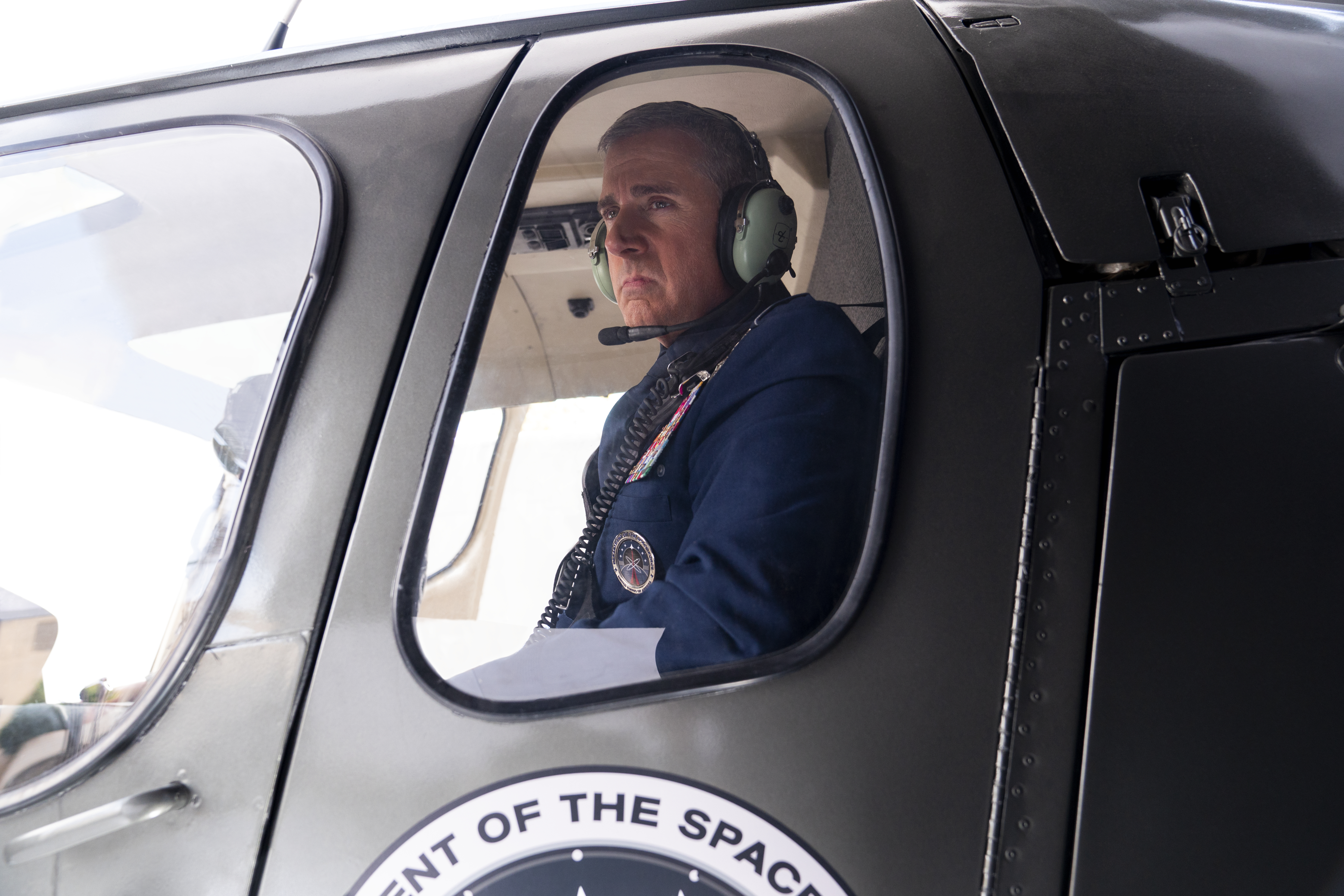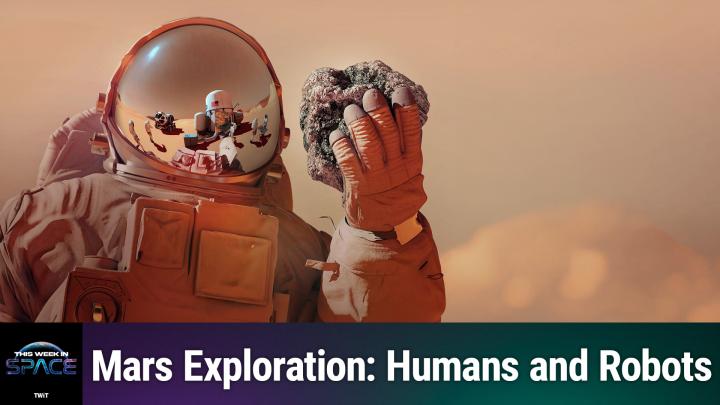Netflix's 'Space Force' is everything we hoped it would be
If you are intrigued by the idea of a "chimpstronaut," this is the show for you.
Breaking space news, the latest updates on rocket launches, skywatching events and more!
You are now subscribed
Your newsletter sign-up was successful
Want to add more newsletters?
Spoiler warning: This review contains spoilers about "Space Force." Also, "Space Force" uses occasional foul language.
Netflix's new "Space Force" series is the inside joke that went too far -- and we love it.
The brand-new show sets out to be a space-age workplace comedy. The series was created by Steve Carell (who stars in the show as General Naird, the head of Space Force) and Greg Daniels, who developed the U.S. version of the smash-hit television show "The Office."
But, while the show really isn't anything like "The Office," and isn't quite perfect, it soars in poking a bit of cheeky fun at the real-life United States Space Force. Fans of Carell, comedy aficionados and space enthusiasts alike are sure to find something they can enjoy about the show, which premieres on Netflix today (May 29).
Related: Surprise! 'Space Force' co-creator Greg Daniels is a big space fan.
The show gets off to a slow start, but does a fantastic job at reflecting the real-life responses that many had to the creation of the real Space Force, which President Donald Trump formally established in December 2019. In fact, in the show's first episode, Gen. Naird laughs out loud when the idea of a Space Force is first mentioned, assuming it's a joke, only to be quickly told that his recent promotion is actually to the head of the new branch.
While Gen. Jay Raymond, the real-life U.S. Space Force Chief of Space Operations, recently gave the show his unofficial seal of approval, the show doesn't shy away from mocking the new branch or even the President of the United States who, in the show, remains unnamed.
Breaking space news, the latest updates on rocket launches, skywatching events and more!
Related: 20 sci-fi movies and TV shows to binge watch on Netflix right now
"Space Force" is not exactly laugh-out-loud funny. Every line isn't a punchline that will have you rolling on the floor laughing.
But what the show does have is a unique voice and cadence that, once you adjust to the strange, gruff "manly military man voice" that Carell uses for Gen. Naird, is a really fun ride. One of the only things that Carell carried into this role that fans of his might recognize is his signature robotic run, which he breaks out throughout the series.
For those who are immersed in the space world or who closely follow current events in the space sector, you might enjoy this show just a little bit more as the series is chock-full of inside jokes poking fun at the idea of militarizing space, at some of the real-life strange moments in spaceflight history and at the current administration (or at least this is heavily implied).
For example, there are a handful of jokes about Twitter interwoven into the show. "POTUS wants to make some changes, he's tweeting about it in five minutes," the Secretary of Defense, John Blandsmith (as played by comedian Dan Bakkedahl), says with a straight face as he announces the creation of Space Force to a room of military leaders.
"POTUS wants complete space dominance, boots on the moon by 2024 … actually, he said boobs on the moon but we believe that to be a typo," Blandsmith added, again with a straight face, serving a subtle dig at the real-life U.S. President's frequent online typos and fumbles.
The military leaders at the table quickly start arguing about whether there's air in space, and the Marine Corps Commandant (played by Patrick Warburton) chimes in with what might be the best one-liner of the first episode: "If there's no air or water, two questions," Warburton asks the table about space, "what is it and why can't they hear you scream?"
With a cast of beloved comedians and actors (including cult-favorite comedic players Ben Schwartz and Chris Gethard) delivering goofy lines with completely straight faces while wearing military uniforms, the show paints a surreal picture of the U.S. military. And it creates a dynamic of dumb leaders in charge and teams of scientists whose more rational ideas are ignored.
For example, in the show's second episode, Gen. Naird has to deal with a serious problem: an enemy satellite from China's space agency has knocked the solar panels off of a satellite that Space Force just launched. While a room full of scientists tries to come up with a reasonable solution, Gen. Naird looks to another recently-launched satellite that has two passengers on board.
In a nearby satellite are Marcus and Theodore, a chimpanzee and a dog who are described as a "chimpstronaut" and a "dogstronaut." "The White House felt very strongly that footage of a dogstronaut and a chimpstronaut would be worthwhile and would be, um … what's the word? Viral," Gen. Naird says.
He orders that the team communicate with the "chimpstronaut," who they later find out ate his dog crewmate, to go on a spacewalk to weld the solar panels back onto the satellite. Of course, this fails, but they see the plan through and try so hard to get this "chimpstronaut" to successfully complete a spacewalk (and almost succeed) that it's too bizarre not to love.
From the "chimpstronaut," who floats away from a Space Force satellite to be scooped up by an enemy satellite, to sporadic, delightful appearances (and one perfectly executed fart joke) from the recently deceased Fred Willard, who was an absolute comedic maven, "Space Force" is an easy-to-enjoy breath of fresh air and a must-watch.
- Military space: spacecraft, weapons and tech
- 20 sci-fi movies and TV shows to binge watch on Netflix right now
- Can we prevent war in space? These guidelines may help
Email Chelsea Gohd at cgohd@space.com or follow her on Twitter @chelsea_gohd. Follow us on Twitter @Spacedotcom and on Facebook.
OFFER: Save 45% on 'All About Space' 'How it Works' and 'All About History'!
For a limited time, you can take out a digital subscription to any of our best-selling science magazines for just $2.38 per month, or 45% off the standard price for the first three months.

Chelsea “Foxanne” Gohd joined Space.com in 2018 and is now a Senior Writer, writing about everything from climate change to planetary science and human spaceflight in both articles and on-camera in videos. With a degree in Public Health and biological sciences, Chelsea has written and worked for institutions including the American Museum of Natural History, Scientific American, Discover Magazine Blog, Astronomy Magazine and Live Science. When not writing, editing or filming something space-y, Chelsea "Foxanne" Gohd is writing music and performing as Foxanne, even launching a song to space in 2021 with Inspiration4. You can follow her on Twitter @chelsea_gohd and @foxannemusic.
